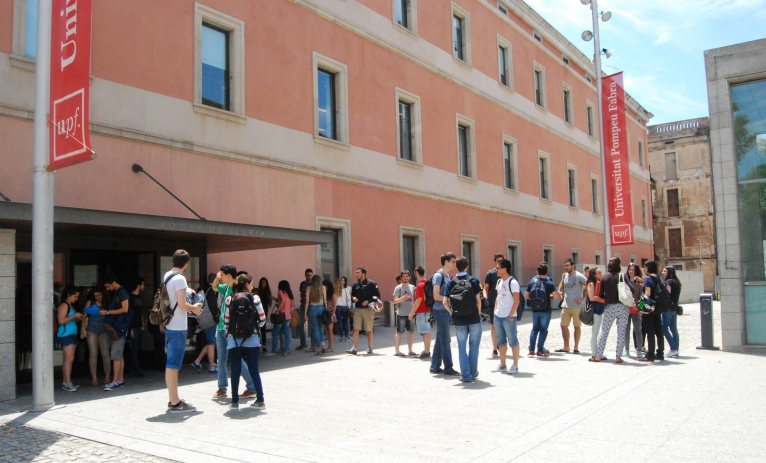UPF leads the research in Spain in nine areas of knowledge
UPF leads the research in Spain in nine areas of knowledge
Such is the outcome of the ICONO Analysis conducted by the Spanish Foundation for Science and Technology. The study is based on the results obtained between 2005 and 2014.
 Nine of the University’s areas of knowledge came in top position in the State in the ICONO Analysis. The report measures scientific excellence between 2005 and 2014 and takes into account the number of scientific publications at each institution included in the 10% of the most cited articles in each area.
Nine of the University’s areas of knowledge came in top position in the State in the ICONO Analysis. The report measures scientific excellence between 2005 and 2014 and takes into account the number of scientific publications at each institution included in the 10% of the most cited articles in each area.
Conducted by the Spanish Foundation for Science and Technology (FECYT), which belongs to the Ministry of Economy and Competitiveness, it uses Scopus, one of the most important scientific databases internationally, to create the ranking of each area of knowledge.
The main indicators used to determine the overall classification are the standardized impact of the documents published in the field and the percentage of excellence in these documents.
The former measures the ratio between the average citations of the documents of the institution and the average citations of all documents in the world in said field. Thus, an institution with an index of 1.3 means that it is cited 30% more than the world average.
The latter calculates the percentage of documents of the institution included in the 10% of the most cited articles in the area of knowledge.
Main areas of knowledge
UPF stands out especially in the fields of Psychology, Economics, Econometrics and Finance, and Art and Humanities, where it ranks first by a clear margin.
The area of Psychology, especially linked to the Department of Information and Communication Technologies (DTIC) through the categories “Cognitive and Experimental Psychology” and “Physiological Psychology and Neuropsychology”, has a standardized impact of 1.92 and some 23% of its publications are in the 10% of the field’s most cited articles.
Economics, Econometrics and Finance has achieved an impact factor of 1.88 and 25% of its publications are in the 10% most cited. These data show the potential of the Department of Economics and Business, which appears among the top positions in the world in several benchmark rankings.
In the area of knowledge of Art and Humanities, UPF also ranks as a national leader, attaining an impact factor of 1.59 and achieving 18.4% of its publications in the 10% most cited. In this area, the success lies in the Department of Humanities and the Department of Translation and Language Sciences, which also obtain good results in the international rankings. This is the case, for example, of what is published by the US News & World Report putting UPF in 99th position in the world in this field.
The other notable areas of knowledge in the ICONO Analysis refer to all areas of the University. In second place in the State are the fields of the Social Sciences; Neurosciences, and the Healthcare professions. Finally, a further three areas come in third position in their field: Medicine; Biochemistry, Genetics and Molecular Biology, and the Multidisciplinary field.
International collaboration as a key factor
Another indicator in which UPF stands out is in the internationalization of its publications, measured by the percentage of those that have been conducted in collaboration with institutions outside Spain.
|
Area of knowledge |
International collaboration |
State position |
|---|---|---|
|
Art and Humanities |
30% |
1 |
|
Biochemistry, Genetics and Molecular Biology |
55.5% |
1 |
|
Social Sciences |
32.8% |
1 |
|
Economics, Econometrics and Finance |
55.4% |
2 |
|
Medicine |
41.8% |
3 |
|
Multidisciplinary |
84.6% |
3 |
|
Neurosciences |
58.9% |
1 |
|
Health professions |
51.8% |
3 |
|
Psychology |
64.6% |
1 |
